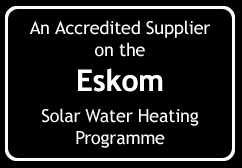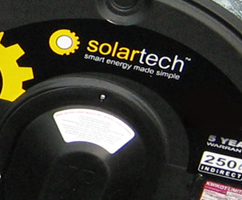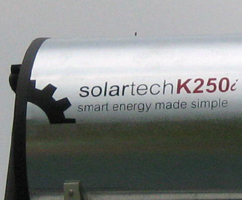


March 11th 2011After experiencing a power crisis a few years ago and contending with the cost of domestic water heating, South Africa is leaning heavily towards an eco-friendly alternative. Over the past 14 years, the solar water heater market has grown a whopping 2000%, with more growth expected in the coming years.
In South Africa, domestic water heating is responsible for 40% of an average household?s electric bill, and for the country as a whole, it accounts for 18% of their energy consumption. These needs were previously met with more traditional heating methods such as conventional geysers, but solar water heaters have proven far more cost-effective. However, the growth of the solar water heating market hasn?t been entirely steady. From 2007 to 2010, there were several reports of malfunctioning products and faulty installation practices. Since then, new suppliers have taken over the market (jumping from less than 20 in 1997 to more than 400 this year), and helped to perfect the products and the ways in which they are used.Now, new building codes will further increase the use of solar water heaters. The code now states that any new building or one undergoing refurbishments will have to get at least 50% of their energy from eco-friendly means, e.g. solar water heaters.While solar water heater installation is significantly more complicated and four times more labor-intensive than conventional geysers, the advantages are clear. And for South Africa it could mean a spot as a top contender in the renewable energy market.Source: http://www.greenbuildingpro.com/ |




